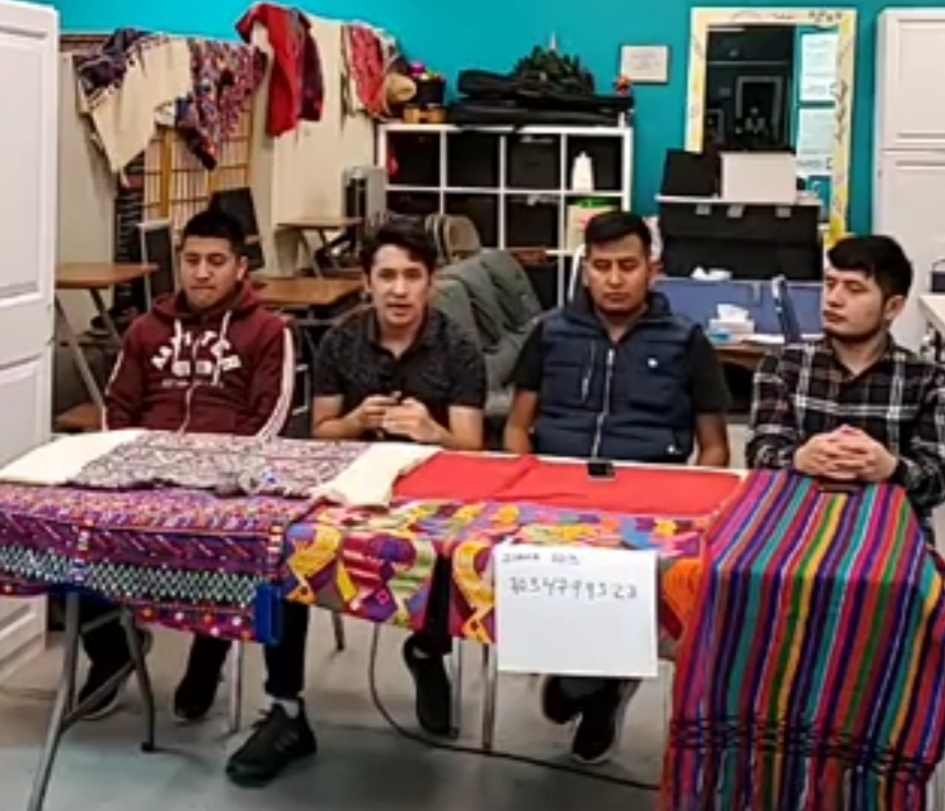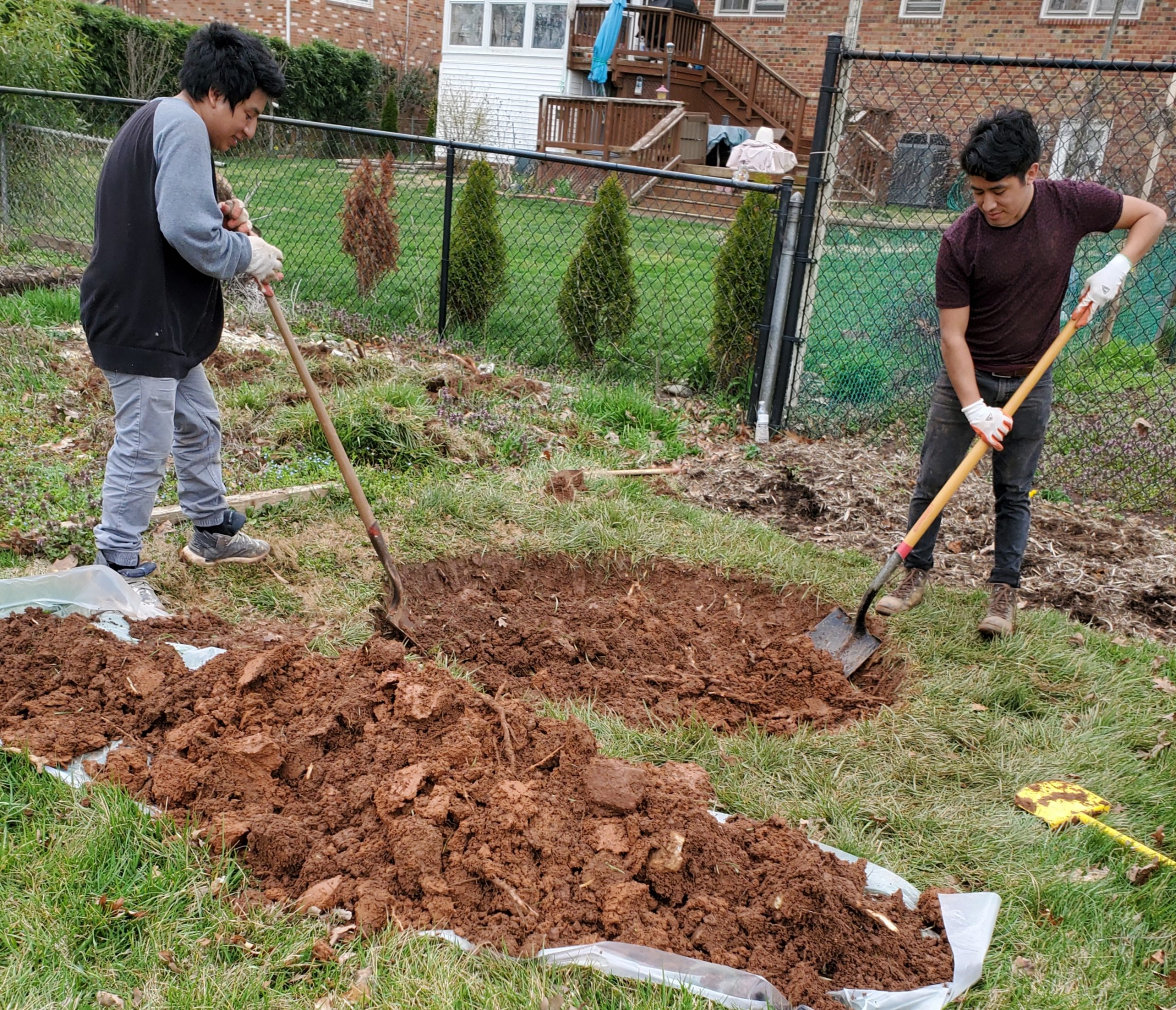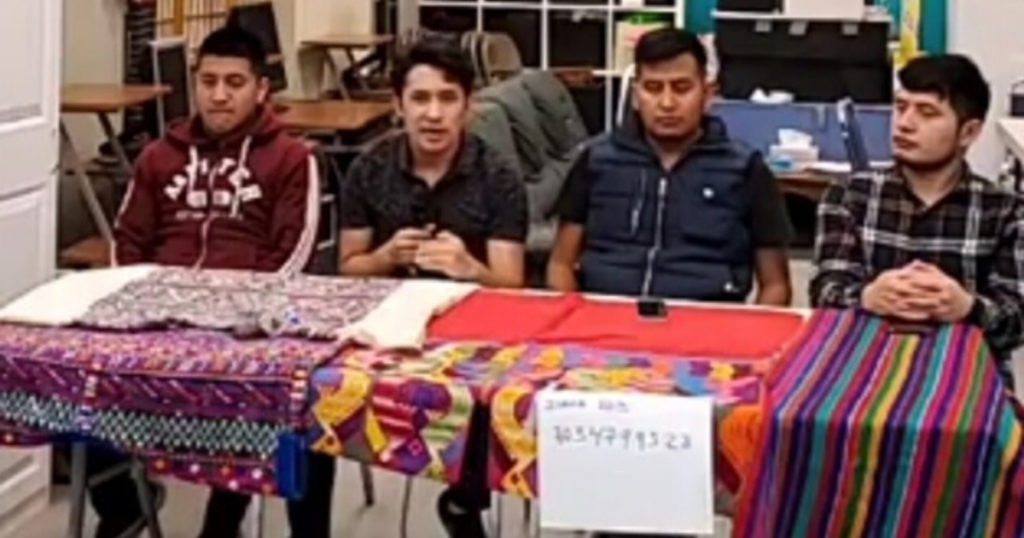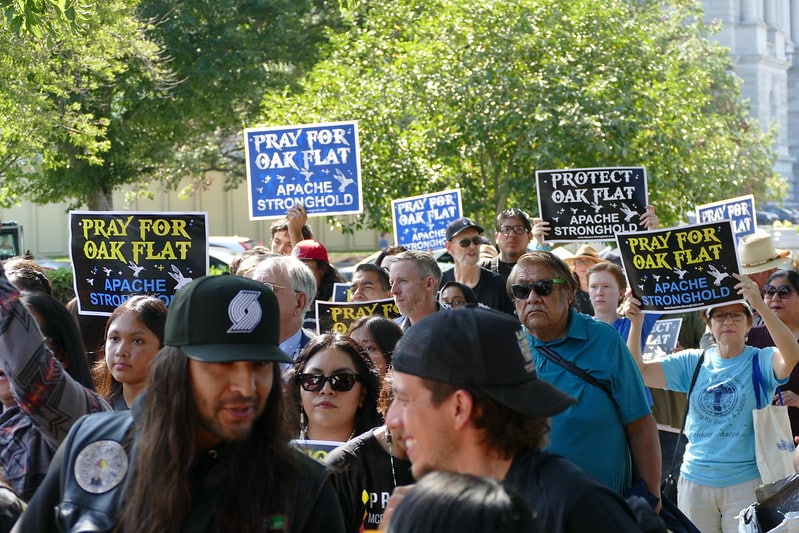Virginia UCC joins indigenous community in response to COVID-19 pandemic
 Members of a Virginia church community are reaching out to family and friends in their home country as they try to navigate the difficulties presented by the coronavirus pandemic.
Members of a Virginia church community are reaching out to family and friends in their home country as they try to navigate the difficulties presented by the coronavirus pandemic.
Four members of the Ixil community in the Virginia suburbs of Washington, D.C., broadcast a live video on Facebook March 17, with prayers and health information for their family and friends here and in Guatemala.
They are reaching out to hundreds of families whose first language is Mayan Ixil and are among those served by the Centreville Immigration Forum, founded by Wellspring United Church of Christ in Centreville and supported by many area community partners since 2010.
Geronimo, who was a community leader in Guatemala under threat for human rights work before fleeing to the U.S., said “there is a lot of stress in the community here. Several people came to me declaring they are going to get a plane ticket and go home, but I told them it is not a good time to fly. We need good information about how to protect ourselves here.”
Shortly after, Guatemala closed its borders to all flights from the United States.
Geronimo also talked about how the fears of the virus bring back to indigenous Guatemalans the trauma that led to their difficult journeys away from home and remind them of their separation from family and culture. All live in the shadow and family memory of the long civil war that targeted indigenous Mayans, and brought the death of about 200,000 people and the displacement of many more.
“They remember the threats of epidemic disease that were part of the campaign against the Ixil people,” said Geronimo.
Brayan, an Ixil youth and member of Wellspring UCC, took part in the broadcast and later helped to deliver emergency food to local families. “Maseca (for tortillas) will keep people going in the emergency,” he said. Several other Wellspring congregants are helping others get emergency food, and are providing transportation to clinics for critical medical needs (not related to the virus).
 During the broadcast, Geronimo and three other community members spoke in Ixil and Spanish about the health measures recommended by the Centers for Disease Control. They also prayed for God’s presence with the community as they face layoffs and increased food and child-care demands while schools are closed. Most work as day-laborers or in restaurants and food stores, and now these jobs are shifting across the country. Day laborers typically have few savings at the end of the winter.
During the broadcast, Geronimo and three other community members spoke in Ixil and Spanish about the health measures recommended by the Centers for Disease Control. They also prayed for God’s presence with the community as they face layoffs and increased food and child-care demands while schools are closed. Most work as day-laborers or in restaurants and food stores, and now these jobs are shifting across the country. Day laborers typically have few savings at the end of the winter.
There have been no cases of the virus in the Centreville indigenous community, but there is slow-down in activity. The Centreville Labor Resource Center, founded by the Forum about nine years ago, began changing its operations this week because of COVID-19. Skills training and English as a second language classes ended a week ago, and Center staff is doing job placement through phone and email. The virus also halted most of the community-building that takes place daily while workers wait for jobs, talk, play checkers, message their families back home, take classes and share information.
On Sunday, March 22, Wellspring UCC live streamed its monthly bi-lingual worship in English and Spanish on Facebook, with prayers for all of those affected by the fears and displacement of the coronavirus pandemic, both here and abroad.
Alice Foltz, a member of Wellspring UCC, is a UCNews contributor.
Related News
UCC leaders join Apache Stronghold Day of Prayer at U.S. Supreme Court to protect sacred land
Following two months of pilgrimage across the country, Apache Stronghold members gathered on...
Read MoreGlobal Cleveland Welcoming Week podcast features UCC’s Andrew Long-Higgins
Global Cleveland Welcoming Week is underway and hosting a series of free events to celebrate...
Read MoreClimate Hope Action Assembly meets to update status of most recent campaign
The United Church of Christ Council for Climate Justice hosts Climate Action Assemblies every...
Read More


